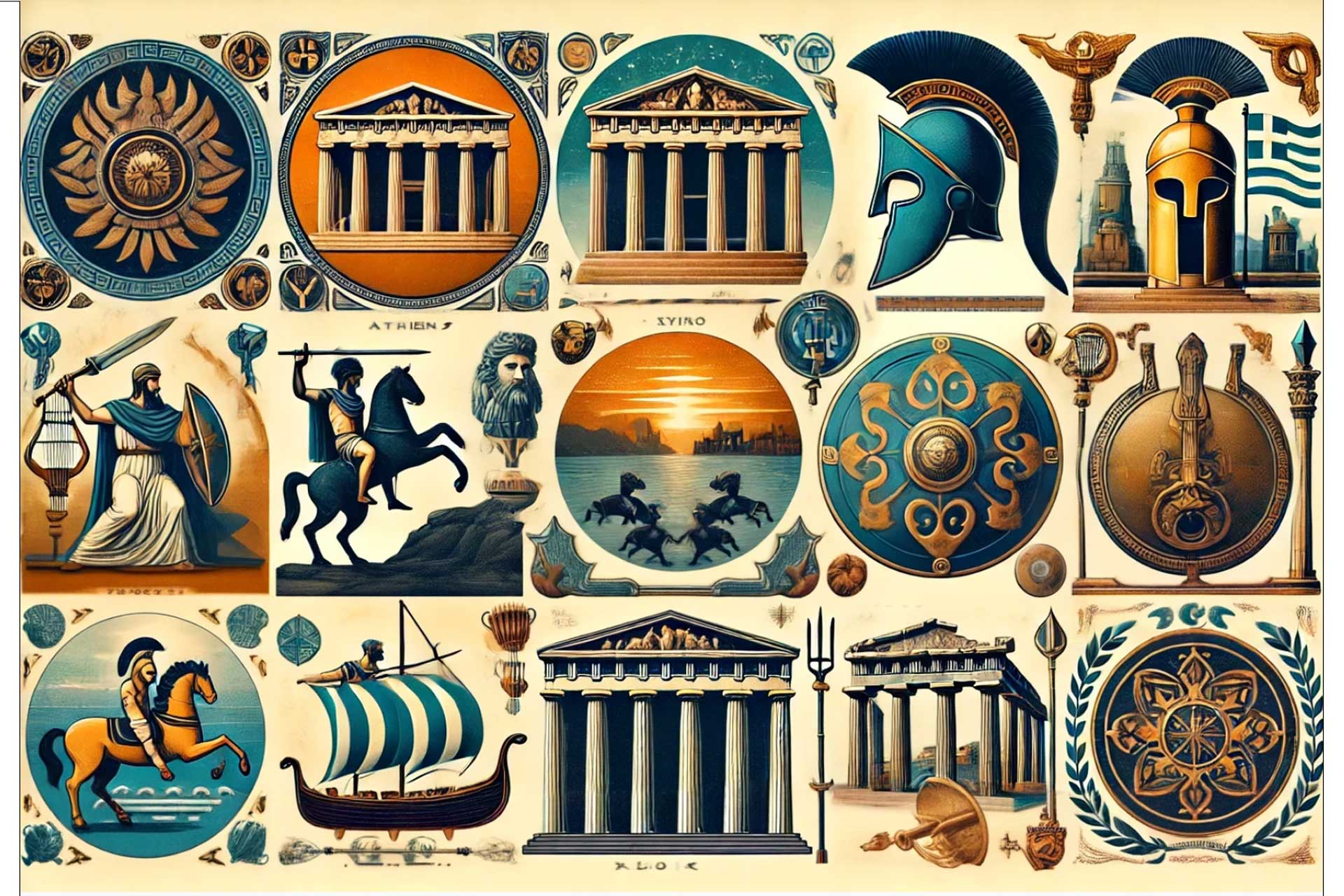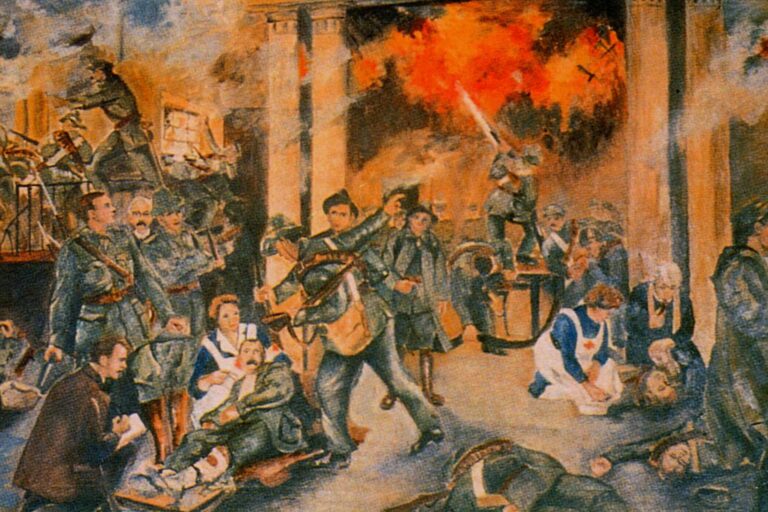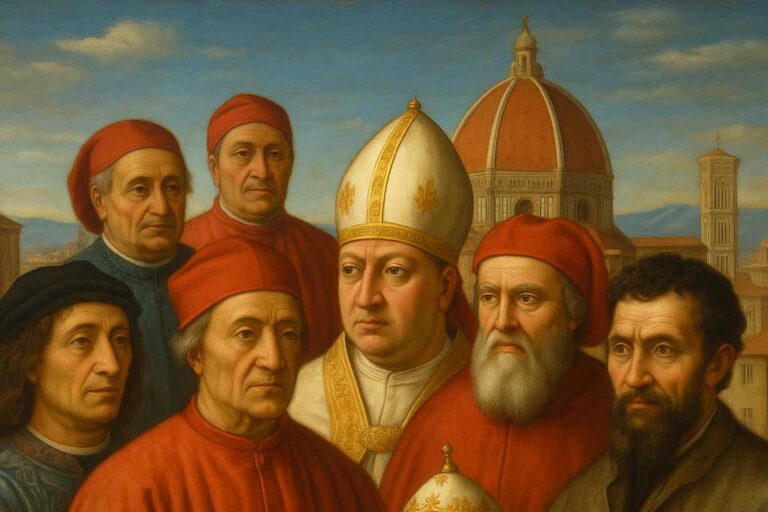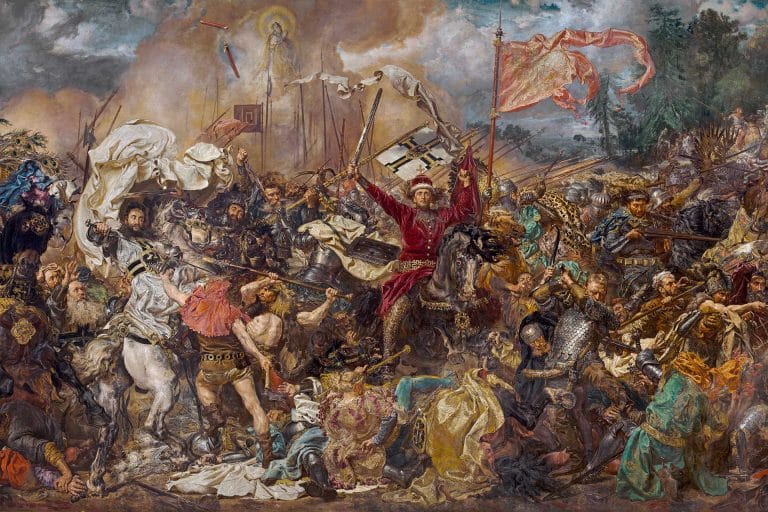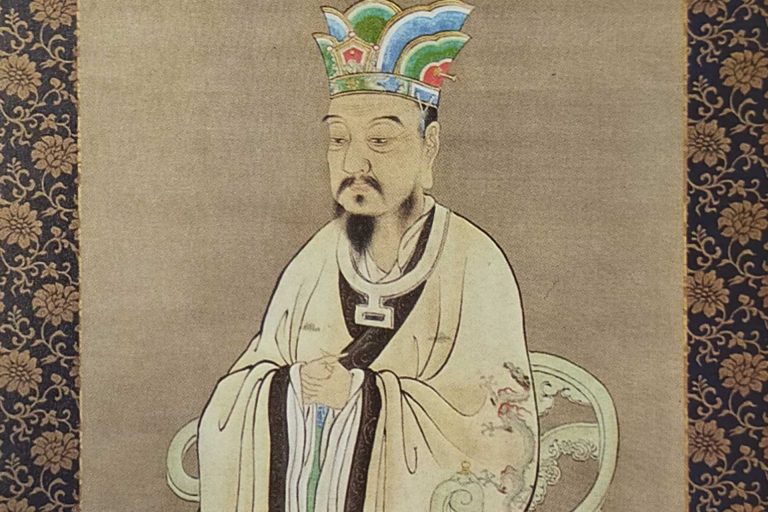The 11 City-States That Defined the Greek Ancient World
The Greek city-states, also known as polis, were the political entities of ancient Greece, each with its distinct government, culture, and military power. They played a significant role in shaping Greek history, politics, and culture, and their influence continues to be felt in Western civilization today. The city-states of ancient Greece are known for their diversity, from the democracy of Athens to the military-focused society of Sparta. Each city-state had its unique history, culture, and achievements, contributing to the rich tapestry of Greek civilization.
In this article, we will explore the 11 most powerful city-states that helped shape the ancient Greek world. These were the city-states that dominated their respective local areas and whose influence has left an indelible mark on the world today. Read on to discover the might and majesty of the ancient Greek city-states!
Athens
Athens also made noteworthy contributions to art, literature, and architecture. The city’s commitment to the arts is epitomized by the construction of the Parthenon, a masterpiece of ancient architecture dedicated to the goddess Athena. Athens’ literary achievements are equally notable, with playwrights like Sophocles, Euripides, and Aristophanes producing works that remain central to the canon of Western literature.
Unlike other Greek city-states, Athens’ focus on education and the arts fostered a vibrant cultural life, including the establishment of schools, theaters, and public forums. This focus on intellectual and artistic endeavors differentiated Athens from its contemporaries. It ensured its legacy as a cradle of Western civilization, influencing countless generations and societies beyond its own time.
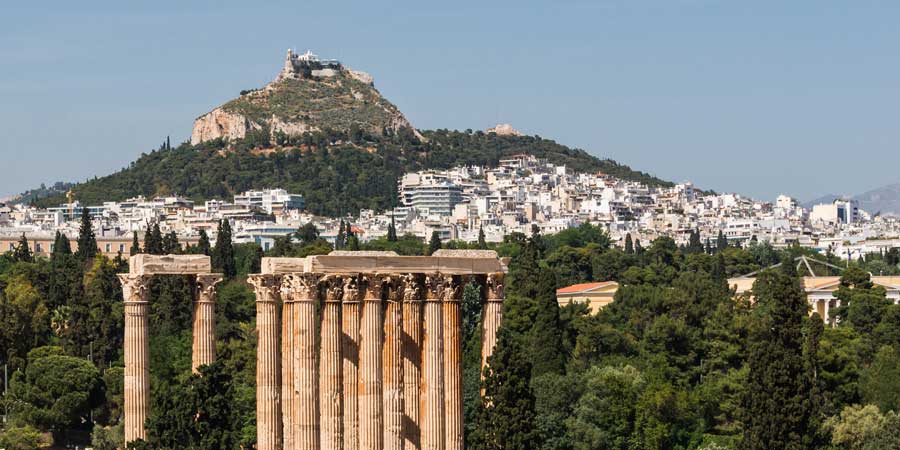
In addition to philosophy, Athens made significant contributions to art, literature, and architecture. The city is home to the Parthenon, a masterpiece of ancient architecture dedicated to the goddess Athena. Athenian playwrights, such as Sophocles, Euripides, and Aristophanes, produced works of literature that are still studied and performed today.
Athens was different from other Greek city-states in its emphasis on education and the arts. This focus on intellectual and artistic pursuits fostered a vibrant cultural life in the city, including the establishment of schools, theaters, and public forums for intellectual exchange. This emphasis on education and the arts sets Athens apart from its contemporaries. It ensured its lasting legacy as a cradle of Western civilization.
Sparta
Sparta was a land power that ruled all of Laconia, and it was known for its military and social systems. Sparta made a significant impact on the Greek world and was known as one of the most powerful Greek city-states. Sparta differed from the other Greek city-states in that it was constantly focused on developing and producing effective warriors. This social system allowed Sparta to be highly influential for many centuries.
Sparta dominated the Peloponnesian League, which would later act as the military counterweight to the Athenian-led Delian League and be a primary force in Greek geopolitics. Sparta was on the front lines of the Persian Wars, where it played a significant role in the Greek resistance against the invasion of Xerxes I.
The most famous encounter was the Battle of Thermopylae, where a small force of Spartans and their allies held off the Persians for days before the Spartans were routed. However, defeated, they delayed the Persians long enough for the Greek states to organize resistance. The Persian Wars concluded with a Greek victory, the defeat of the Persian forces at Plataea in 479 BCE by an army composed mainly of Spartans.

The Spartan society was what made it a force to be reckoned with. A child, usually a male, would begin training at age 7 in the agoge. The children would be taken from their parents and put through a viciously challenging training program. This system produced some of the finest warriors, but also some of the tightest-knit cities in the Greek world.
Sparta was different in many ways from most other Greek city-states. Its society was particular; Spartan people were soldiers. They place great emphasis on their military. Their lifestyle was much different than their neighbors’: simple, endured hardship, and valued self-sacrifice. This was because Sparta was just such a unique culture; the Spartans were the terror of ancient Greece.
Corinth
Corinth was a wealthy Greek city-state known for its significant role in commerce and trade. It controlled a busy land route and seafaring routes with several cities throughout the ancient world, and it possessed the ports of Lechaion and Cenchreae, one on the Aegean Sea and the other on the Ionian Sea, making it a center of trade. Corinth was situated on the Isthmus of Corinth, which connects the Peloponnese to the rest of Greece, giving it a key geographic position for trade and military movements.
Its power stemmed from its status as a commercial and industrial center of Greece. Corinthian pottery is well-known for its fine ware, and Corinth became wealthy from trade and the export of its famous pottery. Corinth was one of the first Greek cities to develop a fleet and shipbuilding techniques.
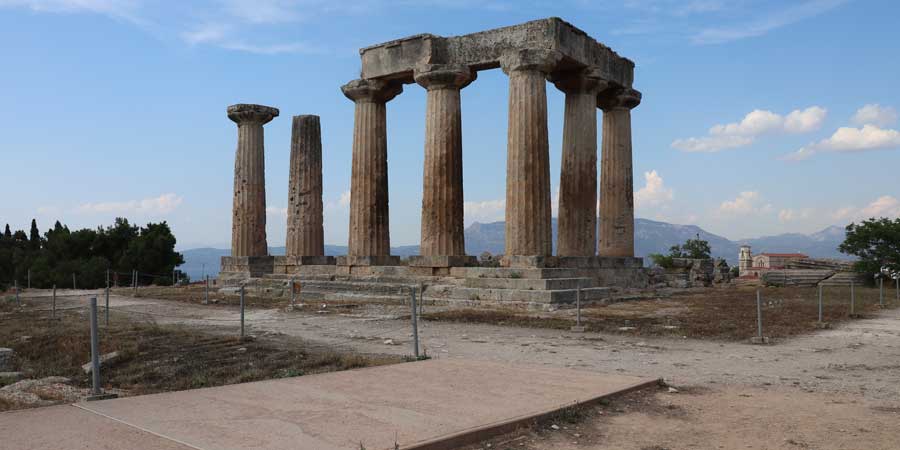
Corinth played significant roles in many Greek alliances and wars. Corinth was a vital part of the Peloponnesian League, a powerful military alliance in ancient Greece. During the Peloponnesian War, Corinth sided with Sparta against Athens. The city’s strategic location and military might were instrumental in various Greek conflicts, and its alliances, especially those with Sparta, profoundly influenced the course of Greek history.
The city is also known for an early paved trackway called the diolkos. The diolkos was a paved trackway where boats were pushed overland on wheeled carts from the Greek mainland to the Peloponnese Peninsula, allowing easier and faster transit between the Aegean Sea and Ionian Sea. This was the only such transit route in the ancient world and gave Corinth major influence over Greece and the surrounding regions.
Thebes
Thebes was a significant city-state in central Greece and had an essential role in ancient Greek history. It was a significant military power and often competed with Athens and Sparta. Thebes is located in the fertile Boeotian plain, which enabled it to prosper and become influential in Greek affairs. The city had a strong military tradition and was known for its expert soldiers and skilled generals.
One of Thebes’ significant contributions to Greek history was its role in the Battle of Leuctra, where it defeated Sparta in 371 BC. This victory was a turning point in Greek history as it ended the myth of Spartan invincibility and their hegemony over Greece. The battle was a masterclass in tactics, with the Theban general Epaminondas employing innovative strategies, such as the oblique phalanx formation, to outmaneuver the Spartans.
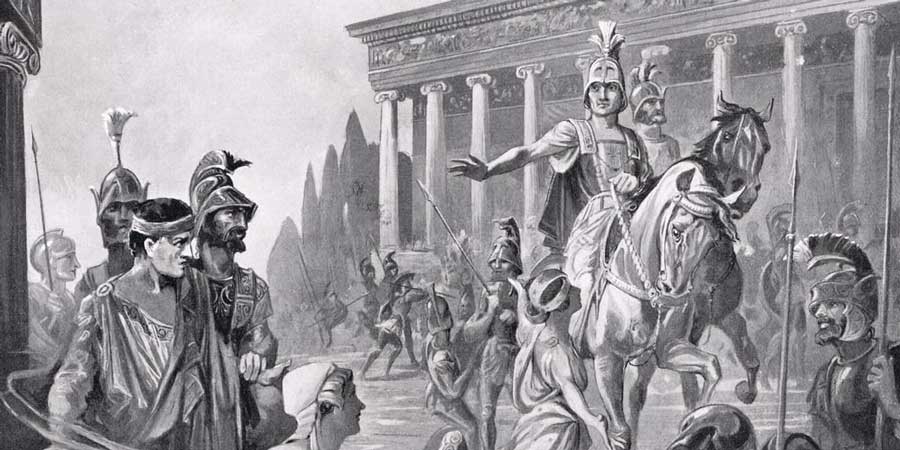
Thebes was also instrumental in the formation of the Boeotian League, a coalition of city-states in Boeotia. This league aimed to provide mutual defense and economic cooperation among its member states, thereby strengthening Thebes’ position in the region. The Boeotian League was involved in several military campaigns, and its successes showcased Thebes’ leadership and strategic acumen.
Thebes had several notable leaders, such as Epaminondas and Pelopidas, who played a vital role in the city’s history. Epaminondas, in particular, was known for his military genius and his vision of a more balanced power structure in Greece. He led the Thebans to victory at Leuctra and went on to free many Greek city-states from Spartan domination. The leadership and vision of Theban leaders contributed to a period of political and military resurgence for the city and had a lasting impact on Greek history.
Argos
Argos is one of the oldest Greek city-states in terms of importance in the Peloponnesian region. It has been a significant Greek city-state since prehistoric times. The area of Argos was occupied from the Stone Age through prehistoric, ancient, and medieval times, and up to the present. The significance of Argos as a Greek city-state is marked by its strategic location and the important figures who have ruled over it in Greek mythology. For example, some of the most critical and historic figures in Greek mythology and epic poetry have been attributed to the kings and rulers of Argos.
Argos remained neutral for a significant part of the Peloponnesian War. This neutrality during the war was a considerable advantage for Argos, as it enabled it to maintain its resources and avoid substantial destruction. Furthermore, this allowed Argos to serve as a potential “safe haven” for some cities and political actors, as well as to position itself as a potential negotiator or mediator.
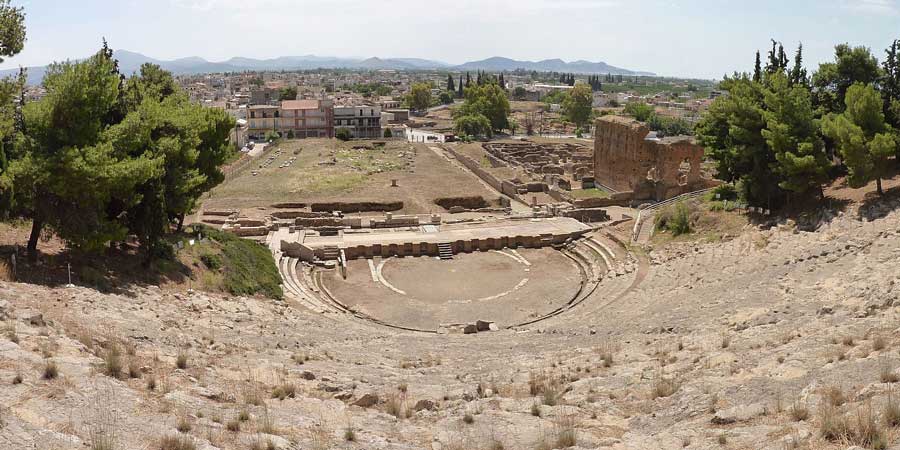
Argos is one of the earliest examples of epic poetry and Greek mythology, as the Greek city-state is directly linked to the beginning of mythological history. Argos was the site of numerous ancient Greek myths and epics, and was frequently mentioned by the epic poet Homer and the mythological figure Perseus. Argos is also an example of significant and early achievements in ancient Greek architecture, as the city was home to essential structures such as the Heraion of Argos, a Greek temple dedicated to the ancient Greek goddess Hera.
Argos was also an early adopter of democratic ideology in Ancient Greece, as the city was an early example of a democratic political system rather than the monarchical or oligarchical forms of government.
Syracuse
Syracuse was a powerful city-state on the island of Sicily and played a significant role in the western Greek world. The city’s strategic location allowed it to exert influence over Mediterranean politics and trade. Founded by Greek colonists from Corinth in 734 BC, Syracuse quickly rose to prominence, becoming a major center of culture, commerce, and military power.
Syracuse played a pivotal role in the Sicilian Expedition (415-413 BC) by repelling the Athenian invasion. The conflict between Syracuse and Athens during this period was a crucial turning point in the Peloponnesian War. Syracuse, under the leadership of Hermocrates and other commanders, defeated the Athenian forces, highlighting the city-state’s military prowess. The victory in the Sicilian Expedition solidified Syracuse’s position as a dominant power in the region.
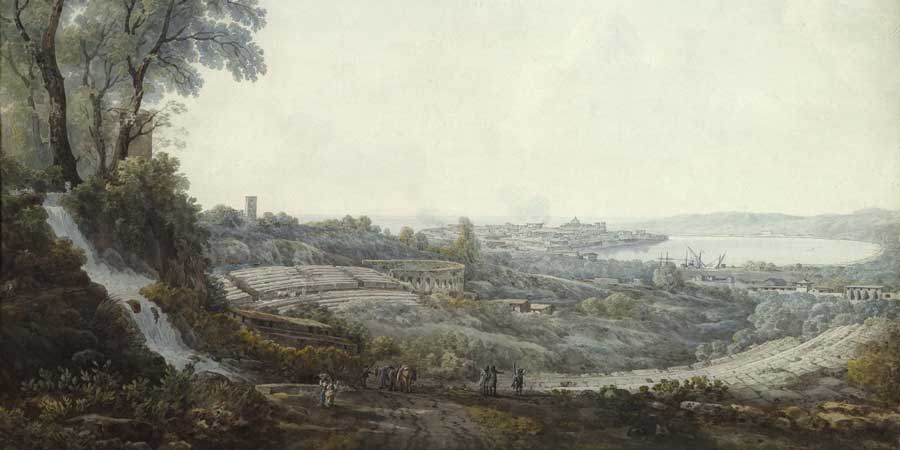
The city of Syracuse was associated with several influential leaders and thinkers, including Dionysius the Elder and the renowned mathematician and inventor Archimedes. Dionysius the Elder was a tyrant of Syracuse known for his military reforms and fortifications. His reign saw the strengthening of the city’s defenses, including the construction of the “Epipolae walls,” which were a formidable line of fortifications that protected Syracuse from attacks. Archimedes, on the other hand, was a brilliant mathematician and inventor whose work left a lasting impact on mathematics and engineering.
Syracuse was a center of culture, producing magnificent architecture and hosting a variety of artistic and cultural events. The city was known for its impressive architecture, including the Temple of Apollo and the large theater, where numerous plays were performed. These structures served not only as places of worship and entertainment but also as centers of social and cultural life in Syracuse.
Rhodes
Rhodes held significant power in the eastern Aegean Sea and was known for its formidable naval force and as a bustling center of trade in the ancient Greek world. Situated in a strategic location, it served as a vital link between the Greek mainland and the various civilizations along the eastern Mediterranean and beyond.
As a maritime power, Rhodes was renowned for its impressive navy, which enabled it to control key trade routes and protect its commercial interests. The island’s naval capabilities allowed it to exert influence and maintain a position of strength in the region. Rhodian sailors and ships played a crucial role in securing trade routes, ensuring the safe passage of goods, and expanding the island’s reach across the Mediterranean Sea.
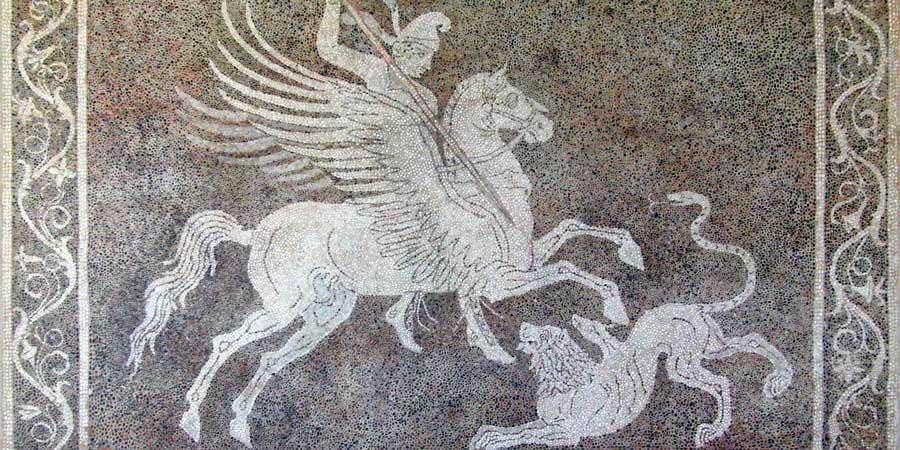
The city of Rhodes on the island was famous for the Colossus of Rhodes, one of the Seven Wonders of the Ancient World. This enormous statue of the sun god Helios was constructed to celebrate Rhodes’ victory over the ruler of Cyprus and served as a symbol of the city’s strength and resilience.
Standing at an estimated height of 33 meters (108 feet), the Colossus was built by the sculptor Chares of Lindos and was one of the tallest statues of the ancient world. Although the statue stood for only 54 years before an earthquake toppled it, the Colossus of Rhodes remained a source of pride for the Rhodians and a testament to their artistic and engineering achievements.
In addition to its military and commercial significance, Rhodes was also a center of Hellenistic politics and culture. The island was home to a famous school of rhetoric, which attracted students from all over the Greek world. Rhodian culture was heavily influenced by its extensive trade networks, and the city was a melting pot of ideas and traditions from across the Mediterranean.
Megara
Megara was a rival of Athens for many years. This rivalry between these two neighboring city-states pushed each to excel in different areas. Megara was located on the Isthmus of Corinth, which provided easy access to trade routes between the Greek mainland and the Peloponnese, as well as beyond.
Megara was responsible for founding many colonies, including the most famous, Byzantium and Chalcedon. These colonies later played significant roles in Greek and Roman history as important commercial and military centers. Byzantium would eventually become the great city of Constantinople, which was the capital of the Byzantine Empire.
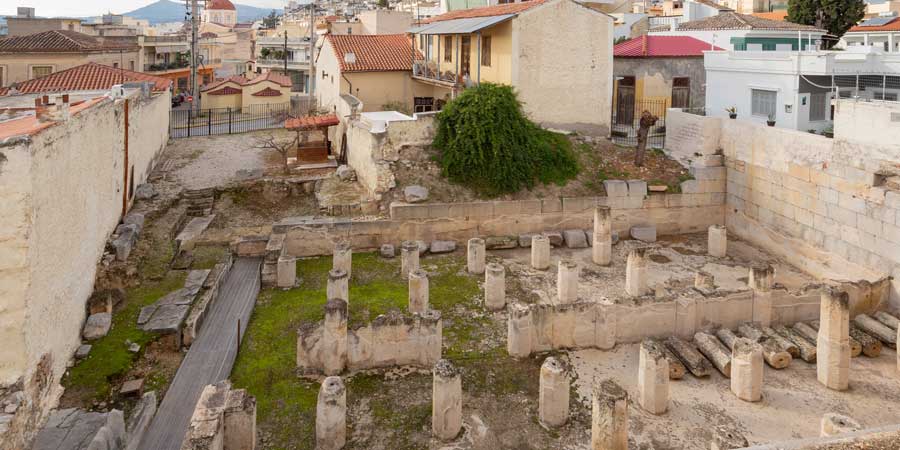
Megara was also known for its architects and builders. The city produced many skilled craftsmen who built impressive temples, public buildings, and infrastructure. This talent for construction helped make Megara a beautiful and prosperous city, attracting artisans and traders from all over the Greek world.
Megara also played a significant role in early Greek trade and commerce. The city’s strategic location and maritime expertise helped it establish extensive trade networks throughout the Mediterranean. Megara’s merchants were known for their shrewdness and ability to navigate complex trade routes, allowing the city-state to amass great wealth and influence.
Miletus
Miletus was a highly influential city-state in ancient Ionia, located in modern-day Turkey. Miletus was renowned for its intellectual and cultural achievements, serving as one of the most significant centers of philosophy and science in the ancient Greek world. The city was the birthplace of notable pre-Socratic philosophers, including Thales, Anaximander, and Anaximenes, who made foundational contributions to the development of Western philosophy and science.
Additionally, Miletus was known for its extensive trade and colonization. The city-state established numerous colonies across the Mediterranean and the Black Sea, contributing to the spread of Greek culture and influence. Miletus was strategically positioned on the coast, facilitating active commercial exchanges and serving as a vital hub for the exchange of goods, ideas, and technologies.
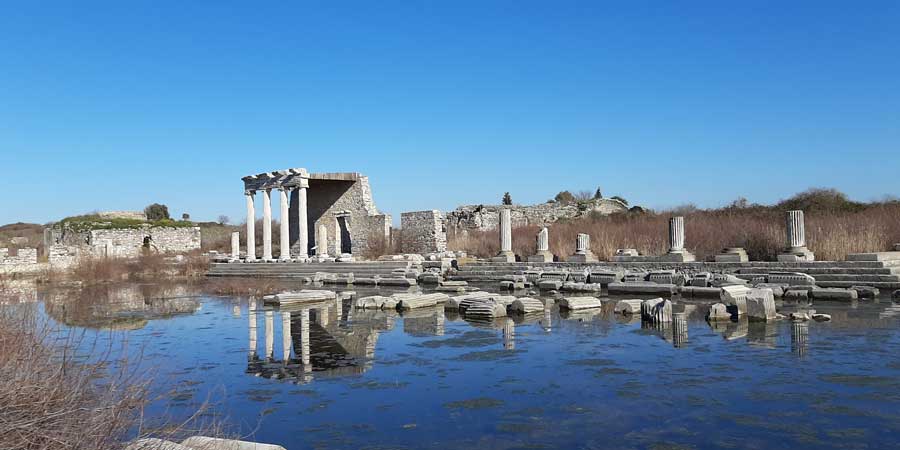
Miletus also played a significant role in the Ionian Revolt against Persian rule in the early 5th century BC. The city’s resistance to the Persian Empire sparked a series of conflicts that ultimately led to the Greco-Persian Wars. Miletus’s involvement in the revolt and its struggle for independence from Persian rule are noteworthy aspects of its history.
In summary, Miletus was distinguished by its contributions to philosophy, its extensive trade and colonization, and its involvement in the Ionian Revolt. The city-state’s legacy as a center of intellectual pursuit and its strategic importance in trade and colonization efforts solidified its prominent position in the ancient Greek world.
Epirus
The social and political organization of Epirus was substantially different from that of other Greek states. It was composed of tribes with their own social hierarchies, in contrast to the polis (city-state) structure of most other Greek regions. This system was a federation of tribes, with powerful monarchs known as kings. This federation of tribes introduced a different political organization to the ancient Greek world, emphasizing tribal unity under the leadership of a king rather than the individual city-states found elsewhere in Greece. Epirus’s unique social and political structure allowed it to play a significant role in Greek and later Hellenistic history.
Epirus is best known in the broader context of Greek history for its king Pyrrhus, whose campaigns against Rome in the Pyrrhic Wars had a lasting impact on the course of history. Pyrrhus’s military campaigns against Rome were ambitious and showcased the Epirote forces’ strength and strategic acumen. However, these campaigns also gave rise to the term “Pyrrhic victory,” as Pyrrhus’s costly military successes against Rome ultimately led to his downfall. His campaigns also showed the region’s willingness to challenge even the most powerful adversaries of the time.

Dodona, one of the oldest oracles in Greece, was located in Epirus. It was second only to the famous Oracle of Delphi in terms of prestige and was visited by many seeking the guidance of Zeus. This sanctuary and its oracle contributed to the religious and cultural richness of Epirus, adding a spiritual dimension to its social and political influence in the ancient Greek world.
Epirus also played significant roles in various Greek and Hellenistic conflicts, where its strategic position and military forces allowed it to influence the course of essential events and power dynamics in the region. The Hellenistic period also saw the formation of the Epirote League, a federal union of tribes that further unified the Epirotes and increased their collective power.
Elis
Elis was a city-state in the western Peloponnesus, famous for controlling Olympia, the sacred site of the ancient Olympic Games. This association with Olympia, a place of great religious and cultural significance in the Greek world, made Elis a center of athletic excellence and religious festivities.
Hosting the ancient Olympic Games, Elis was at the heart of one of the four pan-Hellenic games, drawing competitors and spectators from all over Greece. These games were as much a religious festival as they were a sporting event, celebrating physical prowess and paying homage to Zeus. This role underscored Elis’s importance in promoting unity and shared identity among the Greek city-states through sport and religious observance.
The Games and Elis’s administration of Olympia also highlighted the city-state’s advanced societal organization and governance. The efficient management of such a large-scale event required a well-organized society and effective leadership, marking Elis as a significant contributor to the cultural and political life of ancient Greece.
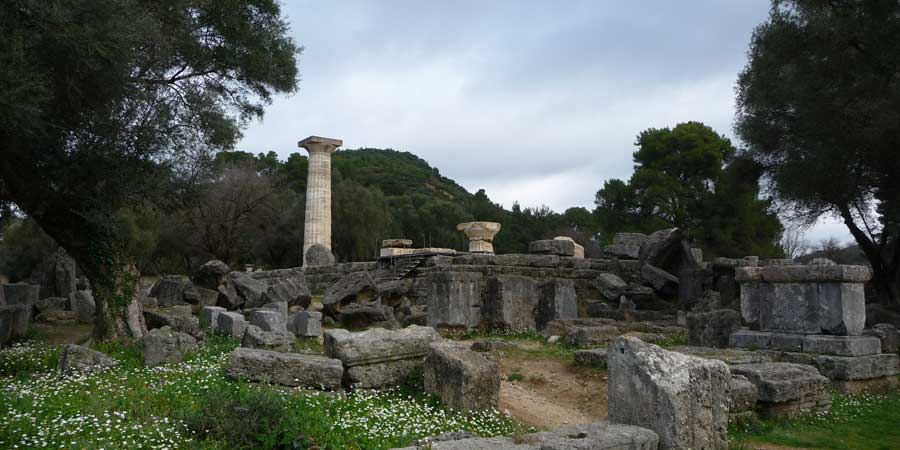
The city-state’s significance was further heightened by its religious duties, including the management of the sanctuary of Olympia. This site was not just the venue for the Olympic Games but also a major religious center, housing temples, altars, and statues, including the statue of Zeus, one of the Seven Wonders of the Ancient World. This spiritual aspect of Elis’s identity contributed to its prestige and importance in the ancient Greek world.
Elis also had a distinctive form of government and societal organization, setting it apart from other city-states in ancient Greece. Its focus on religious, cultural, and athletic excellence allowed Elis to carve out a unique place in the history of Greek civilization, maintaining its influence and prestige through these contributions.
The 11 City-States That Defined the Greek Ancient World
In conclusion, the historical legacies of the city-states we studied throughout this course reveal the diversity and significance of ancient Greek civilization. Whether it was the democratic principles of Athens, the militaristic society of Sparta, or the cultural achievements of Corinth and Rhodes, each city-state made a distinct mark on history.
Their political systems, philosophical ideas, artistic expressions, and military strategies have shaped the modern world and continue to inspire and inform contemporary culture and politics. Through studying these important Greek city-states, we have gained a deeper understanding of the origins of Western civilization and the rich mythology of ancient Greece.

